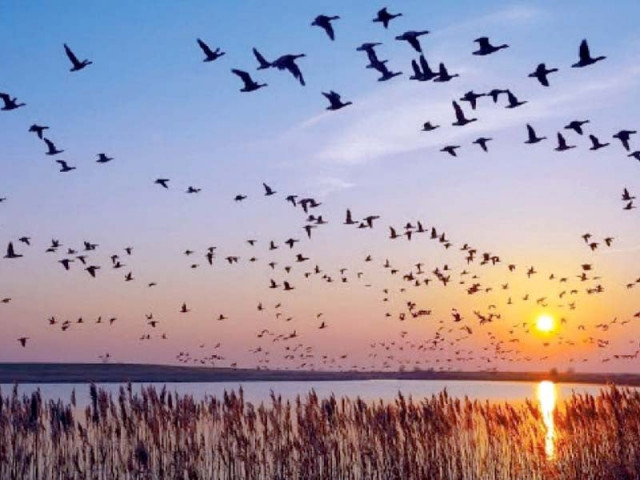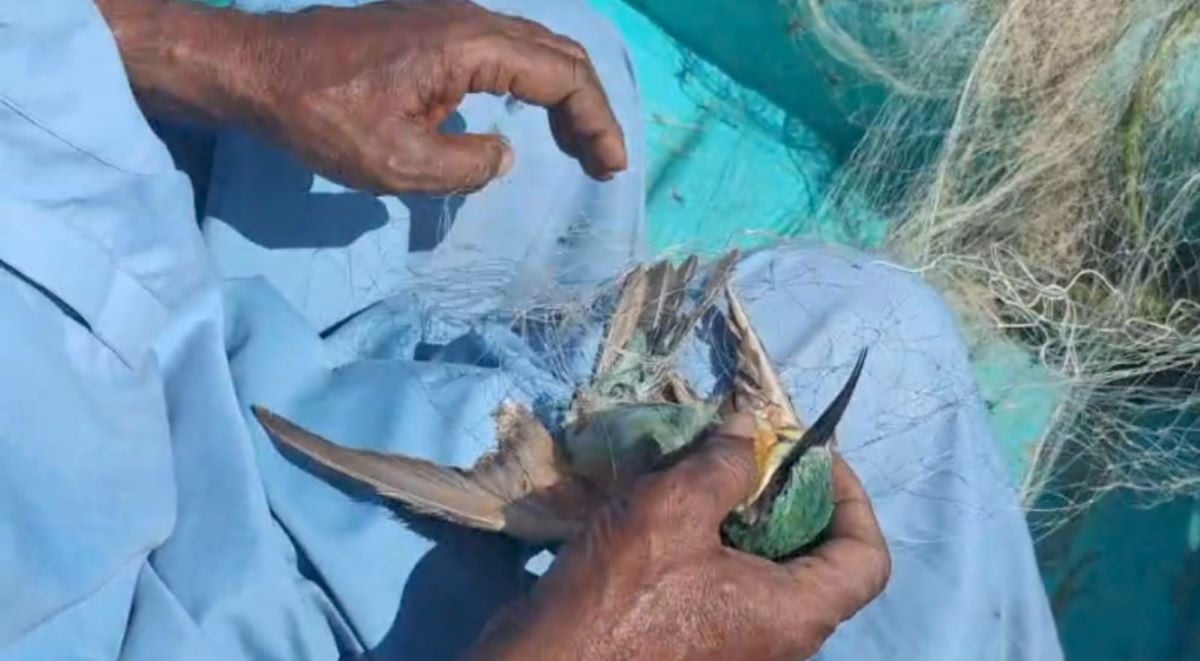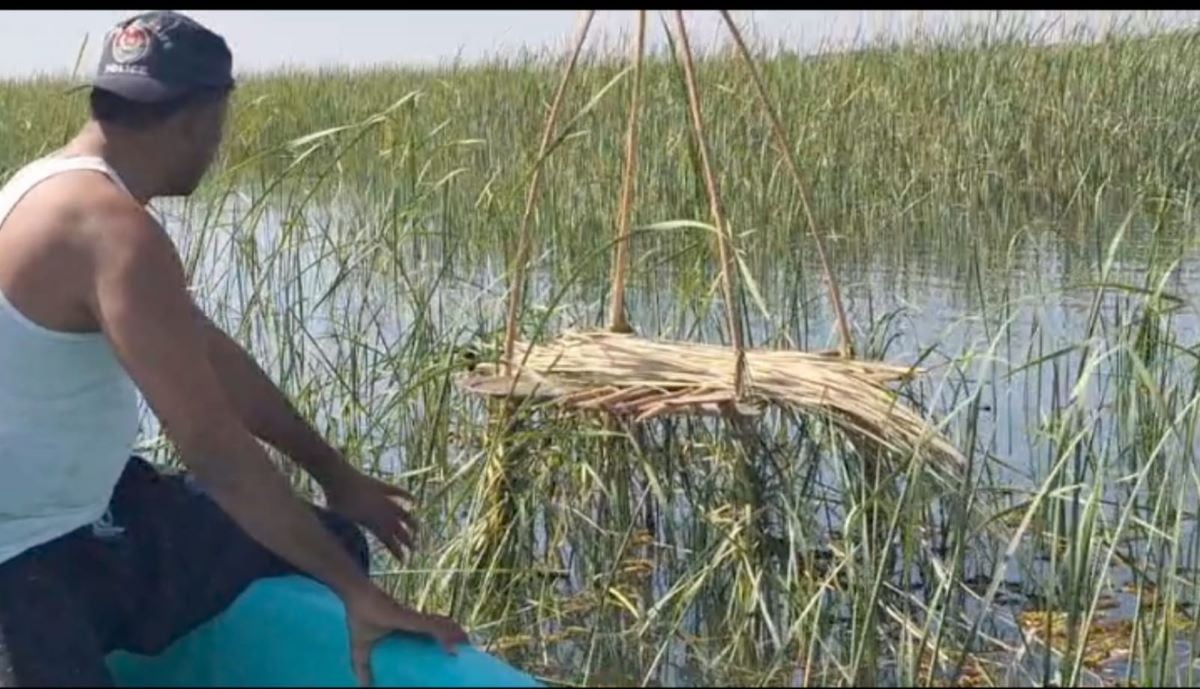Poachers ensnare Siberian migratory birds in Sindh's wetlands
Hunting migratory birds in Pakistan's 20 protected wetlands is punishable by up to two years, Rs50,000 fine

Migratory birds from cooler countries set off on long journeys to moderately temperate countries like Pakistan every winter, in search of food and survival. However, thousands of kilometers away from Siberia, poachers lie await with nets and snares.
The guest birds reach Pakistan, annually, between early November and February. Wildlife experts say they use the Indus Flyway Route Number Four. Through international green routes, they enter fly zones in Pakistan from snow blanketed regions like Siberia, Russia, and Kazakhstan.

The birds reside in Sindh's rural wetlands and along Karachi’s coastal areas, finding temporary shelter until they fly back to their countries of origin in February. Other freshwater birds, marine waterfowl, grass and reed-eating birds also migrate to Sindh’s water reservoirs.
Along the Indus Flyway, poachers begin their activities near the last station and the first stopover of these guest birds, luring the avians with food.
Poachers typically plant bamboo poles at intervals in soft sand, with nets stretched across them to trap low flying birds. Nets submerged in water are also used to catch birds. Siberian ducks, herons, and various types of northern waterfowl, exhausted from their long journeys, fall into the hunters’ traps.
Another troubling trend has emerged — images of shot and captured birds are brazenly uploaded to social media. Local influentials are often found to be behind accounts posting such visuals.
Ensnaring poachers
Pakistan has 20 Ramsar sites – protected wetlands of international importance, where hunting migratory birds is punishable by imprisonment of upto two years, along with a fine of Rs50,000.
Most poachers are fishermen, says the Sindh Wildlife Department. Fishermen observe migratory movements when fishing in deep waters and trap guest birds in nets and snares.
The wildlife department recently arrested three suspected poachers from Keenjhar, Manchhar, and Langh Lakes.

Farooq Ali, Abdullah, and Safdar Ali were arrested for poaching at Langh Lake. They were handed 13-day sentences each under the Sindh Wildlife Protection Act 2020.
Sindh Deputy Conservator Mumtaz Soomro said that poaching is not only illegal but tantamount to exterminating these migratory species, posing severe threats to the ecological balance.
Wildlife enforcement teams confiscated nearly 100 nets, spanning several kilometers, that had been set up in Badin’s Nurri Lagoon to trap ducks. Search for the perpetrators continues.
Groups of illegal hunters become active at the onset of winter, noted Somro. They capture migratory birds and sell them in city markets.
The provincial wildlife department frequently raids such markets and rescues poached animals.





















COMMENTS
Comments are moderated and generally will be posted if they are on-topic and not abusive.
For more information, please see our Comments FAQ